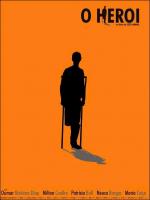African cinema
Articles tagged with African cinema
Tag Archive
- Abotcha
- acid house
- África do Sul
- Afro-Port
- Afrolis
- Alcindo Monteiro
- anti-racism
- arab spring
- artworks
- autonomy
- Bandjoun Station
- benguela
- Bienal de S.Paulo
- biography
- black art
- brazilian film
- Brit Funk
- CES
- Coimbra Biennial of Contemporary Art
- collector
- colóquio
- commerce
- cotas
- Dambudzo Marechera
- Danças africanas
- dance show
- debate
- desenvolvimiento
- Diáspora
- Dictatorship
- Douala
- escrita
- EUA
- Euridice Kala
- exposição
- femini
- Fernando Medina
- films
- fragment
- freedmon
- Frelimo
- gastronomia
- germany
- grime
- heteronormative
- história
- História dos Descobrimentos e da Expansão
- human condition
- immigrant
- Jacques Rancière
- Jean-Michel Basquiat
- Jimmie Durham
- José Saramago
- JSF#2
- kim praise
- korubo
- LAC
- Licínio Azevedo
- Lisboa
- Lunda
- luso-tropicologia
- maputo
- Mário Macilau
- mental health
- moral economy
- morocco
- música
- Mwamby Wassaky
- Namibe
- namibe desert
- Neo-Animism
- New Orleans
- Nito Alves
- Nuno Crespo
- Parangolé
- Pedro Neves Marques
- plateau
- polish photography
- political riots
- post-memory
- Rabbit Hole
- refineries
- Remittances
- representações de áfrica
- Samir Amin
- Sana na N’Hada
- semba
- senhor
- sorcery
- SOS Racismo
- spaces of invention
- sudoeste
- Swahili
- Tchitundo-hulo
- theater
- Tropicália
- Tuchangamke
- Whiteness
- women rights
- “Sexual Misconduct in Academia”
 This article uses a reading of Zézé Gamboa's award-winning 2004 feature as a basis for an exploration of post-conflict Angolan screen culture and of its impact both at home and internationally. It considers how O Herói‟s depiction of a war-torn nation, and of the impediments to its reconstruction, negotiates between a socially-engaged film-making practice, informed by local tradition and the tenets of „Third Cinema‟, and the demands of a globalised cinema market. The film achieves this compromise by deploying allegorical and symbolic tropes, familiar from the literature, cinema, and political discourse of the era of Angolan liberation (notably, the concept of a socialist „new man‟), to complicate a superficially optimistic story of post-conflict rehabilitation, and to insinuate a critique of the authoritarian practices and neo-liberal policies of the MPLA government.
This article uses a reading of Zézé Gamboa's award-winning 2004 feature as a basis for an exploration of post-conflict Angolan screen culture and of its impact both at home and internationally. It considers how O Herói‟s depiction of a war-torn nation, and of the impediments to its reconstruction, negotiates between a socially-engaged film-making practice, informed by local tradition and the tenets of „Third Cinema‟, and the demands of a globalised cinema market. The film achieves this compromise by deploying allegorical and symbolic tropes, familiar from the literature, cinema, and political discourse of the era of Angolan liberation (notably, the concept of a socialist „new man‟), to complicate a superficially optimistic story of post-conflict rehabilitation, and to insinuate a critique of the authoritarian practices and neo-liberal policies of the MPLA government. 
